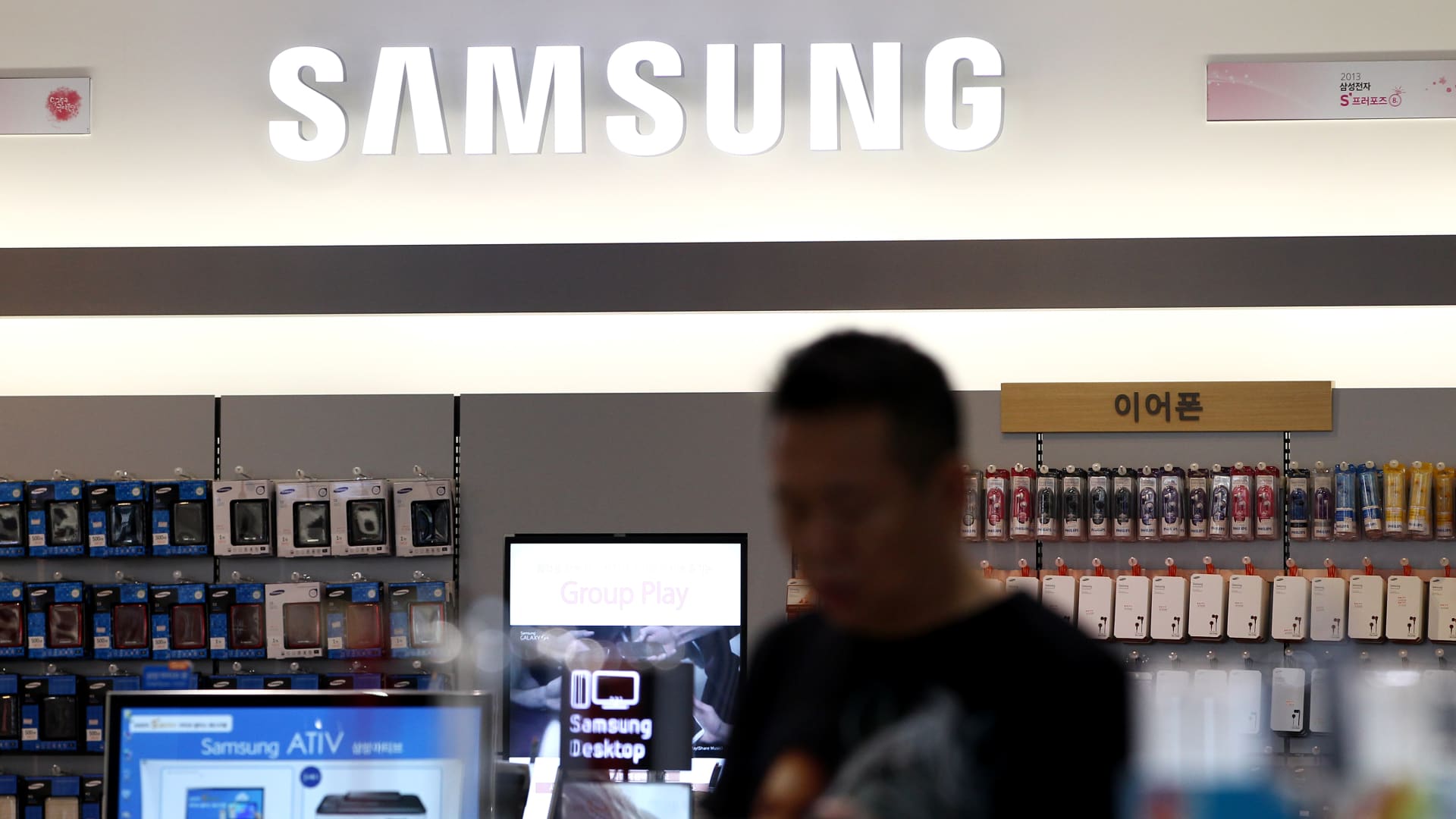Samsung is facing a testing time with profit slumping due to weak demand for its memory chips.
SeongJoon Cho | Bloomberg | Getty Images
An influential Samsung Electronics workers union on Thursday warned that its members could walk out over a wage dispute in what could be the South Korean tech giant’s first strike in its history.
The National Samsung Electronics Union claims that Samsung management has cut the union out of wage negotiations.
The NSEU, which says it represents around 10,000 staff, or around 9% of employees, staged a press conference outside one of Samsung’s buildings in Seoul and demanded the tech giant’s Chairman Lee Jae-yong join the discussions.
Lee Hyun-kuk, a representative of the union, said it would go on strike after a consultation with its members but said it depends on the “attitude” of Samsung Chair Lee, and his willingness to negotiate, according to local media reports that were posted on the union’s website.
“It depends on the attitude of chairman Lee Jae-yong. We sincerely ask him to come to the table for talks,” the NSEU’s Lee said, according to Bloomberg.
A Samsung spokesperson said that “the company has diligently followed all relevant and related procedures, and will continue to hold discussions with the union.'”
If the walkout goes ahead, it would be the first strike since the founding of Samsung Electronics in 1969. Samsung Electronics encompasses Samsung’s consumer hardware, semiconductor, display and mobile carrier businesses.
Tension with workers comes at a sensitive time for the world’s biggest smartphone and memory chip maker, after its operating profit in the first quarter plunged to its lowest level since 2009. Samsung has been hurt by falling prices and demand for its memory chips, which is its biggest profit driver.
The union is asking for a 6% wage increase for workers. Samsung management said last month it would increase wages by around 4%, according to the union.
Image and article originally from www.cnbc.com. Read the original article here.

